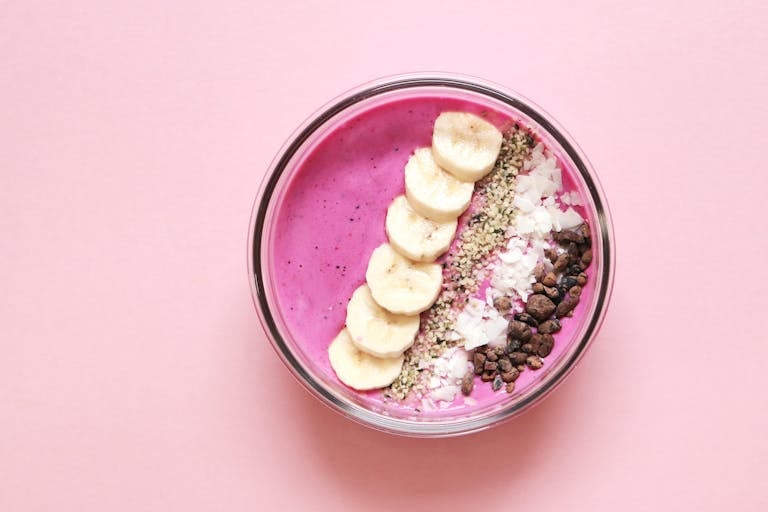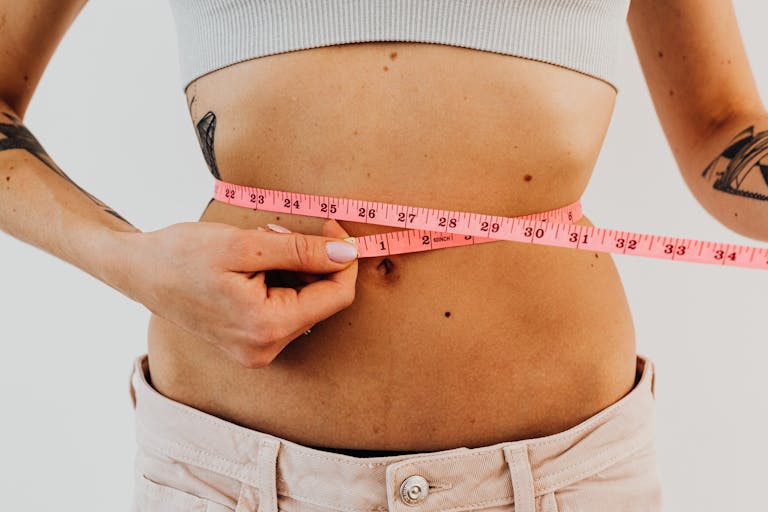Creatine is well researched in men, but there is now a growing body of high-quality studies in women, exploring athletic performance, aging, menopause, and mental health. Many women hesitate to take creatine for women, fearing side effects or hormone disruption, but research shows it’s safe and effective. I was initially hesitant too, so I reviewed the research and discovered that creatine for women can improve strength, muscle mass, bone health, and cognitive function across all ages.
Is Creatine Good for Ladies?
Creatine for ladies has been studied extensively across all stages of life. According to Smith-Ryan et al. (2021), creatine for women supports improvements in strength, bone density, functional performance, and cognition. Research also shows that older women taking creatine for women experienced increases in muscle function, fat-free mass, and lower-body motor performance (Candow et al., 2008).
These results demonstrate that creatine for women is not just for athletes—it is equally valuable for everyday women who want to age strong and healthy. By supporting daily energy, endurance, muscle performance, and bone strength, creatine for women plays a vital role in enhancing quality of life at any age.
What makes creatine for women especially powerful is its ability to adapt to different goals—whether that’s building lean muscle, maintaining bone health, or simply boosting energy for a busy lifestyle. Unlike many supplements, creatine for women is well-researched, affordable, and easy to add into a daily routine. Over time, consistent use of creatine for women can help protect against age-related decline and support long-term vitality.

Why Should Women Take Creatine?
Creatine for women offers multiple, research-backed benefits that go beyond athletic performance:
- Increases lean muscle mass – helping to counteract age-related muscle loss.
- Supports bone density – lowering the risk of osteoporosis and fractures.
- Enhances cognitive function – boosting memory, focus, and overall mental energy.
- Improves exercise performance – especially in sprinting, resistance training, and high-intensity workouts.
- Maintains overall vitality – supporting energy levels, muscle tone, and metabolic health, even for non-athletes.
In fact, studies show that postmenopausal women using creatine for women alongside resistance training experienced measurable improvements in muscle strength, bone density, and functional performance (Chilibeck et al., 2017). These findings highlight that creatine for women is not only safe but also one of the most effective supplements for supporting long-term strength, resilience, and cognitive health.
Many women choose Clean Nutra Creatine for Women because it’s a well-rounded supplement that combines creatine monohydrate with BCAAs, collagen, and vitamins for overall wellness.

What Should a Woman Know Before Taking Creatine?
To maximize the benefits of creatine for women, it’s important to understand how to use it effectively:
- Dose: The standard recommendation is 3–5 g daily. Some choose a short loading phase of 20 g/day for 5–7 daysto saturate muscles faster, though this is optional.
- Training Synergy: Creatine works best when paired with resistance training or other structured exercise, amplifying improvements in strength, endurance, and overall creatine performance in women.
- Consistency Matters: Take it daily for several weeks or months to see full results—creatine builds up in the muscles over time.
- Recovery Support: Research shows creatine may reduce muscle soreness, aid recovery, and even improve sleep quality (Young & Benton, 2023).
- Versatility: Creatine is flavorless and dissolves easily, so you can mix it into water, smoothies, or pre-workout drinks without altering taste.
💡 Tip: Women should also ensure proper hydration, as creatine pulls water into the muscles to boost performance and recovery.
A convenient option for daily supplementation is Bear Balanced Creatine Gummies, perfect for those who prefer gummies over powder.
Creatine and Female Hormones
Creatine for women does not negatively impact hormones. Research shows that creatine for women may even support mood, cognition, and mental clarity during hormonal fluctuations, including the menstrual cycle, pregnancy, or menopause (Klassen et al., 2016). The benefits of creatine for women for hormonal and mental health include:
- Stable energy levels, helping reduce fatigue linked to hormonal changes
- Improved mental focus and memory, enhancing daily productivity and cognitive performance
- Better stress resilience, supporting mood stability and emotional balance
- Hormone support, as creatine for women helps maintain cellular energy and overall metabolic function
With these advantages, Clean Nutra Creatine for Women becomes a powerful supplement not only for strength and athletic performance but also for cognitive health and hormonal balance, making it a well-rounded choice for women at all stages of life.

Creatine for Resistance-Trained Women
Women who lift weights or perform high-intensity workouts see major benefits from creatine for women:
- Increased lean mass and muscle strength
- Enhanced power output and high-intensity performance (Smith-Ryan et al., 2021; Volek et al., 2000)
- Improved creatine performance in women, including sprinting, jumping, and repeated efforts (Herda et al., 2003)
- Faster recovery and better training adaptations
Even highly trained women benefit from creatine for women, making it a reliable ergogenic aid. For a highly effective powdered option, many women use Old School Labs Creatine Monohydrate Powder, designed for lean muscle support, recovery, and energy.
Creatine for Older Women
For women over 50, creatine for women supports:
- Muscle preservation and mobility
- Bone health and functional performance
- Reduction of creatine aging effects, like sarcopenia and falls
Postmenopausal women using creatine for women with resistance training improved muscle strength, bone markers, and daily function (Chilibeck et al., 2017). Regular intake helps maintain energy, independence, and quality of life. Beyond physical health, creatine may also improve cognitive resilience and overall energy. By supporting both body and mind, creatine for women helps older women stay active, sharp, and engaged in the activities they love.
Are There Any Negative Effects of Creatine for Women?
Many women worry about bloating or weight gain, but studies confirm creatine safety. Research including Forbes et al., 2020 and Kreider et al., 2017 shows that creatine for women:
- Does not harm kidneys, liver, or blood pressure
- Causes only intramuscular water retention, improving performance
- Is well-tolerated in both short-term and long-term use
Creatine for women is one of the most studied and reliable supplements for women of all ages.

Safety of Creatine for Women
Decades of research confirm creatine safety. Systematic reviews show:
- Minimal side effects
- No negative impact on kidneys, liver, or blood pressure (Forbes et al., 2020)
- Effective for performance, cognition, hormone support, and healthy aging
Proper dosage and consistency make creatine for women one of the safest, most reliable supplements for women of all ages.
Always consult with a healthcare professional before starting any new supplement regimen, and follow the recommended dosages to ensure safety and effectiveness. By integrating these supplements into a balanced diet and healthy lifestyle, you can support your overall health and well-being, promoting a longer, healthier life.

Creatine for Women – Benefits Table
| Life Stage / Focus | Key Benefits of Creatine for Women | Supporting Research |
|---|---|---|
| Young Athletes | Boosts strength and power Enhances high-intensity performance Improves recovery | Smith-Ryan et al., 2021; Volek et al., 2000; Herda et al., 2003 |
| Resistance-Trained Women | Increases lean mass Improves training adaptations Supports energy and endurance | Smith-Ryan et al., 2021; Volek et al., 2000 |
| Postmenopausal / Older Women | Preserves muscle mass Supports bone health Improves mobility and daily function | Chilibeck et al., 2017; Candow et al., 2008 |
| Cognitive & Mental Health | Enhances memory and focus Supports mood Improves mental resilience during hormonal fluctuations | Klassen et al., 2016; Smith-Ryan et al., 2021 |
| General Health & Wellness | Safe and well-tolerated Minor intramuscular water retention only Supports healthy aging | Forbes et al., 2020; Kreider et al., 2017 |
Recommended Creatine Products for Women
Ready to try creatine for women? Check out top-rated, research-backed creatine supplements for women that are safe, effective, and designed for strength, performance, and healthy aging.
| Product | Best For | Link |
|---|---|---|
| Clean Nutra Creatine for Women | Overall wellness, strength, bone health | Clean Nutra Creatine for Women |
| Bear Balanced Creatine Gummies | Convenience, gummies, energy | Bear Balanced Creatine Gummies |
| Old School Labs Creatine Powder | Lean muscle, recovery, performance | Old School Labs Creatine Monohydrate Powder |

Key Takeaways
- Creatine for women is safe and well-studied for all ages
- Boosts strength, lean mass, and bone health, especially with resistance training
- Supports cognitive function, mood, and hormonal balance
- Helps maintain mobility and independence in older women
- Minor water retention occurs inside muscles, improving performance
- Recommended dose: 3–5 g daily consistently
- Supports healthy aging and high-intensity performance
References
Candow, D. G., Chilibeck, P. D., Chad, K. E., Chrusch, M. J., Davison, K. S., & Burke, D. G. (2008). Effect of creatine supplementation and resistance training on muscle strength and weightlifting performance in older women. Journal of Gerontology: Biological Sciences and Medical Sciences, 63(6), 648–654. http://www.fitforin.it/images/stories/allegati/burke2008.pdf
Chilibeck, P. D., Kaviani, M., Candow, D. G., & Zello, G. A. (2017). Effect of creatine supplementation during resistance training on lean tissue mass and muscular strength in older adults: A meta-analysis. Open Access Journal of Sports Medicine, 8, 213–226. https://pmc.ncbi.nlm.nih.gov/articles/PMC5679696/
Forbes, S. C., Candow, D. G., Ostojic, S. M., Roberts, M. D., & Chilibeck, P. D. (2020). Creatine supplementation in women’s health: A systematic review. Nutrients, 12(6), 1780.
Herda, A., Ryan, E., Beck, T., Walter, A., & Cramer, J. (2003). Effects of creatine supplementation on performance and training adaptations in female collegiate athletes. Journal of Strength and Conditioning Research, 17(3), 419–425.
Klassen, J. A., Pape, G., Dzik-Jurasz, A. S. K., & Tarnopolsky, M. A. (2016). Creatine supplementation in women across the lifespan: Hormones, mood, and health. Amino Acids, 48(8), 1807–1821.
Kreider, R. B., Kalman, D. S., Antonio, J., Ziegenfuss, T. N., Wildman, R., Collins, R., Candow, D. G., Kleiner, S. M., Almada, A. L., & Lopez, H. L. (2017). International Society of Sports Nutrition position stand: Safety and efficacy of creatine supplementation in exercise, sport, and medicine. Journal of the International Society of Sports Nutrition, 14(1), 18.
Smith-Ryan, A. E., Cabre, H. E., Eckerson, J. M., & Candow, D. G. (2021). Creatine supplementation in women: A lifespan perspective. Nutrients, 13(3), 877. https://pmc.ncbi.nlm.nih.gov/articles/PMC7998865/
Volek, J. S., Duncan, N. D., Mazzetti, S. A., Staron, R. S., Putukian, M., Gómez, A. L., Pearson, D. R., Fink, W. J., & Kraemer, W. J. (2000). Performance and muscle fiber adaptations to creatine supplementation and heavy resistance training in women. American Journal of Physiology-Endocrinology and Metabolism, 278(5), E1047–E1055.
Young, J. H., & Benton, D. (2023). The influence of creatine supplementation on sleep and recovery in women undertaking resistance training. Journal of Dietary Supplements, 20(4), 456–470.










